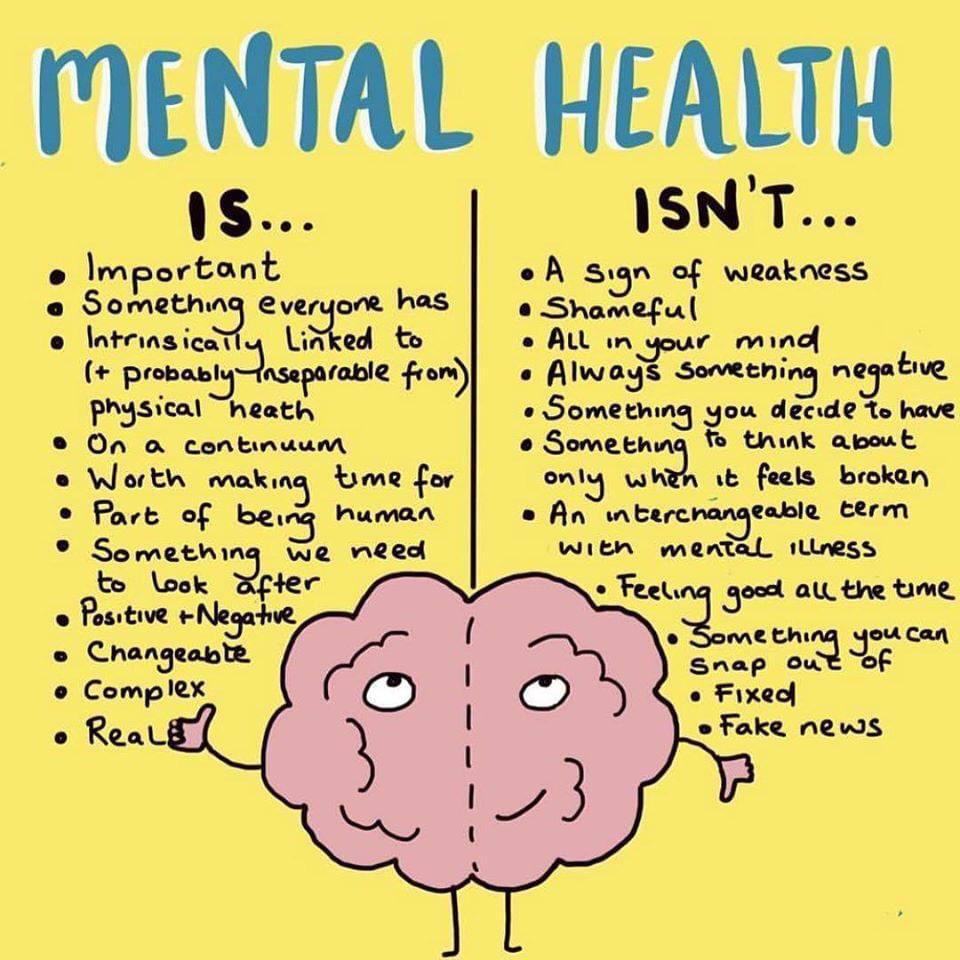Mental Health
Talking about mental health
Policies around health and work have traditionally focused on the physical side of health, symbolised by the health and safety work, where the focus is on reducing risks of physical harm. Yet, in the 21st Century, we know that the main risks to people’s health and wellbeing are around stress and poor mental health.
The facts:
- We all have a level of mental health and wellbeing in the same way that we have physical health
- 1 in 4 people in the UK will experience a mental health problem
- 9 out of 10 people with mental health problems experience stigma and discrimination (Stigma Shout survey by Time to Change, 2008)
- Positive mental health and wellbeing protects physical health and improves health outcomes and recovery rates
- Early intervention and treatment of mental health problems is recommended to improve health outcomes for people with physical illness

Resources
1 Mental Wellbeing in Care Home settings.pdf
10 Presentation Mental Wellbeing in Care Homes.pptx
2 Fact Sheet Resource Mental Wellbeing Key Messages.pdf
3 Guidance Resource Care Home Managers.pdf
4 Guidance Resource Care Home Staff.pdf
5 Guidance Resource Care Home Residents.pdf
6 Poster Leaflet Resource Five Ways to Wellbeing.pdf
7 Poster-Leaflet Resource 5 Ways to Wellbeing Tree.pdf
8 Poster Leaflet Resource Care Home Staff.pdf
9 Poster leaflet Care Home staff mental wellbeing.pdf
Sleep Campaign Activity Ideas.pdf
Template email to go with MWB resources to Care Homes.msg
Mental health conditions
There are many mental health conditions that affect people and they can share the same symptoms, occur at the same time and/or one can lead to another.
The following are amongst the most commonly referred to:
STRESS - Stress is now the number one cause of sickness absence in the UK.
The Health & Safety Executive (HSE) defines stress as:
“the adverse reaction people have to excessive pressure or other types of demand placed on them.”
This distinguishes between the beneficial effects of reasonable pressure and challenge, which can both stimulate and motivate, and work-related stress. This is the term now used for the natural, but very distressing reaction to demands or ‘pressures’ that individuals perceive they cannot cope with at a given time.
Lots of additional info, resources and Stress Risk Assessment templates can be found here: Stress at work - HSE
Mental Health Terms
Anxiety is a response we have to anticipated future threats, and can include excessive worry, recurrent unexpected panics, fear of specific events, circumstances, people or phobia. Worry develops over a period of time.
Depression is feeling sad or down, but for a short period of time. We can recover from this easily and do not need treatment. Clinical depression lasts longer than 2 weeks, and affects all aspects of the sufferer’s life.
Psychosis is a general term to describe a mental health problem which severely disrupts life by changing thinking, behaviour, mood and perception. Can affect self-care etc and may take a long time to diagnose. Whilst commonly referred to it is not a common mental health issue.
Mental Health Signposting
NICE Promoting mental wellbeing at work
International Stress Management Association
Mental Health First Aid England
